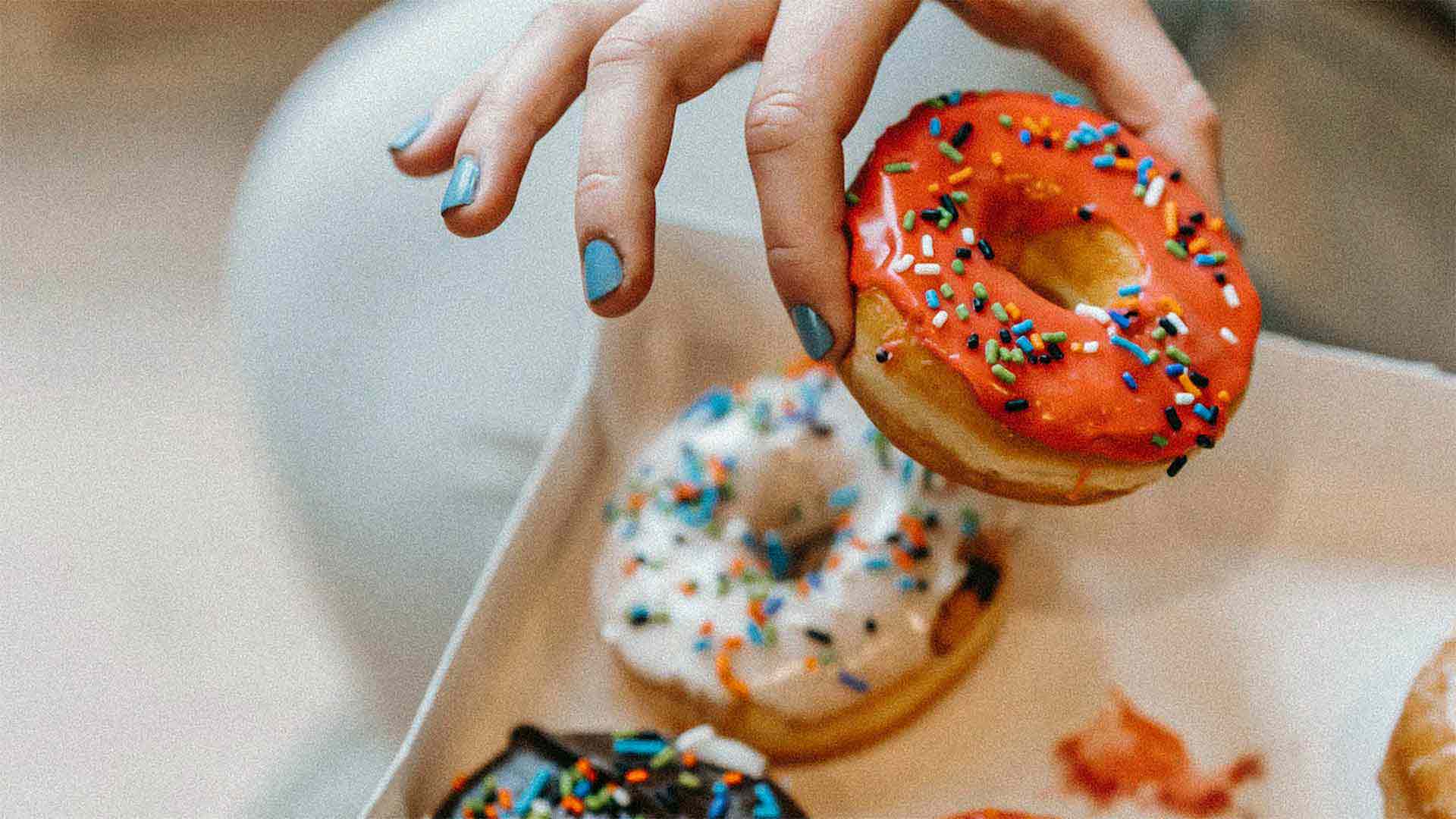Do you ever get hungry right after a meal? Or find yourself snacking all day without feeling satisfied? It’s a frustrating problem but a common one, and it’s probably rooted in your daily habits. Here are 6 reasons you might not be feeling full after eating—and what you can do to address it.
1. You’re not eating enough protein
If your meals are lacking in protein, you may find yourself reaching for a snack shortly after eating, especially if your plate is filled with carbohydrates. Your body digests carbs quickly, and protein much more slowly—helping you feel full for longer after a meal. Not only that, but protein helps regulate the hormones ghrelin, which stimulates hunger, and leptin, your satiety hormone that tells your brain you’re full and satisfied. So be sure to include plenty of protein-rich foods like lean meats, fish, eggs, nuts, beans and lentils in your meals.
2. You’re not getting enough fiber
Getting enough roughage in your diet isn’t just important for gut health; it also helps you feel full longer. Fiber is a vital nutrient in plant-based foods like fruits, vegetables and whole grains that helps slow down the absorption of glucose. This prevents rapid spikes and drops in your blood sugar that can otherwise cause cravings for sweet and high-carb foods. When your blood sugar is low, your body craves quick fuel to bring it back up, which may be the reason you’re left unsatisfied after eating.
Your total fiber intake should be around 25-30 grams per day. You can hit that mark by adding more fiber-rich foods to your meals, such as fruits, vegetables, whole grains and legumes.
3. You’re eating too quickly
If you’re someone who finishes meals in minutes, you’re not alone. When life gets busy, we often leave too little time for meals, and find ourselves wolfing down food. But the reality is, eating too quickly can prevent your body from registering that it’s full. Your stomach needs time to send signals to your brain that it’s had enough, and this can take up to 20 minutes. If you’re rushing through your meal, not only can it cause you to overeat, but it’s easy to miss your hunger and fullness cues, leaving you feeling unsatisfied. Try to eat slowly and mindfully, chewing your food thoroughly and savoring each bite.
4. You’re eating too many processed foods
While we all love a good chocolate cookie or bag of chips, a diet that consists mostly of processed foods, will make you feel hungry faster. Processed foods are often high in calories and low in nutrients, and they tend to spike your blood sugar, making you crash and get again hungry shortly after. Try to limit how many processed foods eat. Instead of that next salty snack, look for something with healthy fats and fiber, which are digested more slowly and leave you feeling full longer.
5. You’re eating too few calories
If you’re not getting enough calories, your body may send hunger signals to encourage you to eat more. Even if you’re on a weight loss journey or trying to maintain a healthy weight, too few calories can cause harm and sabotage your efforts. It’s essential to take enough in to meet your daily energy needs. If you’re not sure where that mark is, trying using a fitness app or connecting with your healthcare provider to determine your needs based on age, sex and activity level.
6. You’re dehydrated
It’s easy to mistake thirst for hunger, so make sure to drink plenty of water throughout the day. That means taking in at least eight glasses of water per day – including one before and during meals. You can also carry a reusable water bottle and include hydrating foods in your diet like cucumbers, watermelon and leafy greens.
Check out next: 5 snacks to keep you feeling full longer
About Gabby
Gabby is a Nutritionist with a master’s degree in strategic communications. She loves using her nutrition-fluency with storytelling to encourage positive change. Before Persona, she worked at a mental health clinic helping clients manage stress, anxiety and other mental health issues through diet.
Gabby is just one of the many experts at Persona who are here to accelerate your wellness journey. If you have questions about nutrition or your personalized program, reach out now or book a free appointment with Gabby or another of our amazing nutritionists.
*These statements have not been evaluated by the Food and Drug Administration. This product is not intended to diagnose, treat, cure, or prevent any disease.
This information is not intended as a substitute for the advice provided by your physician or other healthcare professional, or any information contained on or in any product label or packaging. Do not use the information from this article for diagnosing or treating a health problem or disease, or prescribing medication or other treatment. Always speak with your physician or other healthcare professional before taking any medication or nutritional, herbal, or homeopathic supplement, or using any treatment for a health problem. If you have or suspect that you have a medical problem, contact your health care provider promptly. Do not disregard professional medical advice or delay in seeking professional advice because of something you have read in this article.

